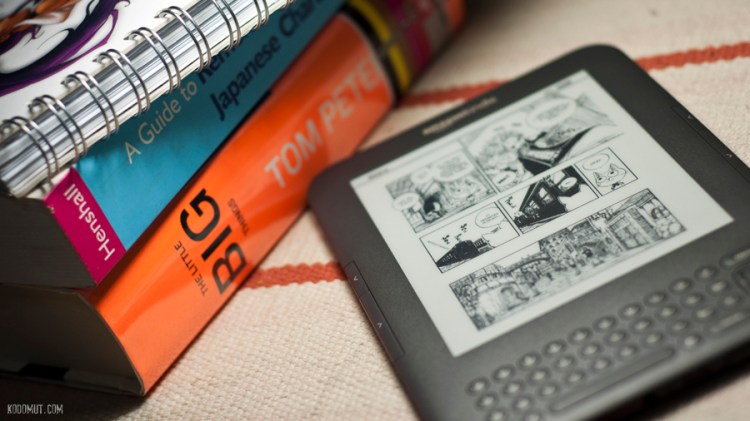A series of recent studies finds that students remember less when reading on a Kindle versus an old-school, hard-copy book. One study split up Italian students and asked them to read a 28-page short story on either an e-reader or in a paper book and found that the electronic group had a harder time remembering the plot.
“The Kindle readers performed significantly worse on the plot reconstruction measure, i.e., when they were asked to place 14 events in the correct order,” said researcher Anne Mangen in the report. “The haptic and tactile feedback of a Kindle does not provide the same support for mental reconstruction of a story as a print pocket book does”.
It turns out that an important aspect of memory is location. Both anecdotally and in published studies, people report that when trying to locate a particular piece of written information they often remember where in the text it appeared.” explains Scientific American. “We might recall that we passed the red farmhouse near the start of the trail before we started climbing uphill through the forest; in a similar way, we remember that we read about Mr. Darcy rebuffing Elizabeth Bennett on the bottom of the left-hand page in one of the earlier chapters.”
Indeed, psychological studies have found that readers do remember some facts based on location of a text within a book. While many different senses can trigger a memory, history shows that people with amazing memories rely on location.
The Method of loci, used by elite of the World Memory Championships, involves constructing imaginary locations and placing objects that represent facts in different areas of the made-up location. For instance, to remember the name Penn Teller, I might recall a street I frequently walk down, placing a pen near the sidewalk and a cash register next to the light poll.
The age old memory technique reportedly came from the ancient Greek, Simonidoes of Ceos, who remember the victims of a collapsed building by remembering where they were seated. “Just about anything that could be imagined, he reckoned, could be imprinted upon one’s memory, and kept in good order, simply by engaging one’s spatial memory in the act of remembering,” explained memory champion Joshua Foer.
URLs don’t occupy the same space as pages, so they might make it harder to recall some details. You can read more about the upcoming paper here.
VentureBeat's mission is to be a digital town square for technical decision-makers to gain knowledge about transformative enterprise technology and transact. Learn More

